October 12, 2021
HIV care and treatment involves complex needs and a unique set of circumstances for each client, and the conventional one-size-fits-all approach to treatment does not best serve people living with HIV (PLHIV). The client-centered approach known as differentiated service delivery (DSD) provides creative solutions to tailor clinical services to meet the needs of each client, an approach that better serves clients and the Kenyan health system.
Ciheb in Kenya, through the PACT Timiza program that recently completed in the Western Kenyan counties of Kisii and Migori, used DSD to support an estimated 90,000 PLHIV with a variety of health services.
DSD provides myriad benefits, such as refocusing resources to those most in need or requiring fewer clinic visits for individual patients.
“Clients who are HIV positive don't come to the hospital very sick in poor health,” said Dr. Angela Ndaga, senior technical advisor for PACT Timiza. “Their management of HIV is similar to having any other chronic illness, such as hypertension or diabetes. The healthcare provider is able to walk with this client through their journey towards better health outcomes, which results in a healthy client who is healthy enough to go about their day-to-day work.”
How DSD is Implemented
PACT Timiza started implementing DSD in 2017 following the national launch of the Differentiated Care Operational Guide 2017. The program had packages of care based on initial and follow-up evaluations to categorize a PLHIV as either well/advanced or stable/unstable. The categorization was based on age, clinical, virological, and psychosocial assessments.
Within a stable population, the program had either facility-based or community-based service delivery models. The unstable population included children, adolescents, and pregnant women seeking services within the maternal and child health clinic, PLHIV with advanced disease (WHO Stage III and/or CD4 <200), and viremia patients (viral load copies of >1000 copies/mL).
When clients visited a facility, they were met by a peer navigator or educator. The client was then triaged and categorized as either stable or unstable. In June 2021, PACT Timiza was supporting 92,216 people, and more than 90% (83,545) were PLHIV who had been on ART for more than a year. Of that PLHIV population, 79% were considered stable, of whom 91% were placed on a differentiated care model.
 Differentiated care based on patient clinical status
Differentiated care based on patient clinical status
Multi-month dispensing (MMD), in which a client is sent home with three- or four-months’ worth of medication, was another facet of DSD. MMD for stable clients provided several advantages, such as reducing the time spent at the facility, the number of clinic visits, and medical costs. The client would see the clinician in follow-up visits at least twice a year if there were no acute issues.
Catering to Demographics
Within Kisii and Migori Counties, PACT Timiza implemented different clinics for different demographics. These included men-only clinics, Operation Triple Zero (OTZ) and OTZ Plus clubs (“Plus” meaning HIV-positive pregnant or breastfeeding adolescent girls), and Papa Mama (PAMA) clinics. The men-only clinics track male-related issues like alcoholism and gender-based violence and organized discussion groups to address them. One example is the support group for men who abuse alcohol in Isecha, Kisii County. The group enrolled men recovering from alcoholism with high viral load and served as an alcoholics anonymous-type group that had representatives pick drugs for members from the facility.
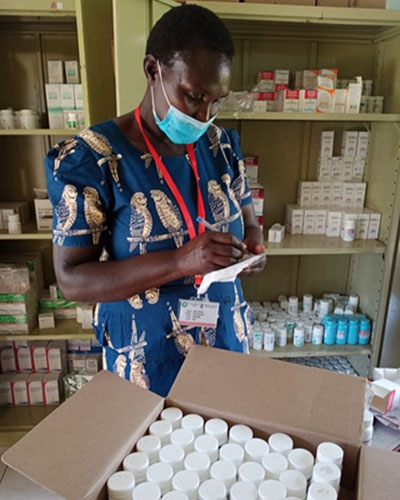 “We're able to engage the men during the family clinics where we have a whole household coming into the facility,” said Dr. Ndaga.
“We're able to engage the men during the family clinics where we have a whole household coming into the facility,” said Dr. Ndaga.
Within the OTZ clubs, the program focused on HIV care in line with the triple zeros: zero missed appointments, zero missed drugs, and zero viral load. For those who were in the maternal and child health clinic — the OTZ Plus clubs — PACT Timiza focused on zero HIV transmission to the unborn child. PAMA clinics were a family-centered DSD model which focused on the well-being of the child as well as that of the mother, father, or any caregiver that supports the child within the HIV clinic.
Different Types of Clinics Needed
Providing DSD requires a level of flexibility by the healthcare system. Due to issues of stigma, there were challenges with operating community ART groups (CAGs) with only 601 CAGs and 5,521 PLHIV (9% of those on a DSD model) enrolled. CAGs tended to appeal more to rural rather than urban residents. Other clients were more comfortable in group meetings at the clinical facility, known as facility ART distribution groups (FADGs), as opposed to group meetings with neighbors.
DSD also addressed the different needs in urban versus rural settings. Urban clients mostly preferred the fast-track model, where clients were in and out of an express clinic in 10 minutes and some clinics opened as early as 6:00 a.m. This was less suitable to a rural setting, where the lifestyle is slower and organizing facility or community groups is more feasible.
“If a client prefers an express model of ART distribution, then that is what the client will receive,” Dr. Ndaga said. “At the end of the day, it's focusing on the client's need and not the healthcare worker’s need.”
Looking to Sustainability
PACT Timiza worked well with the respective county and sub-county health management teams. During mentorship and technical assistance sessions at facilities, program staff worked alongside county and sub-county teams.
“We conduct joint mentorship with the county and sub-county mentors,” Dr. Ndaga said.
This shared experience and the standard operating procedures that have been implemented will ensure the continuity of care for the more than 90,000 PLHIV in Kisii and Migori Counties as the government health management teams take the lead from PACT Timiza.
Contact
Center for International Health, Education, and Biosecurity
Institute of Human Virology
Anthony Okoth
Regional Communications Specialist
Related stories
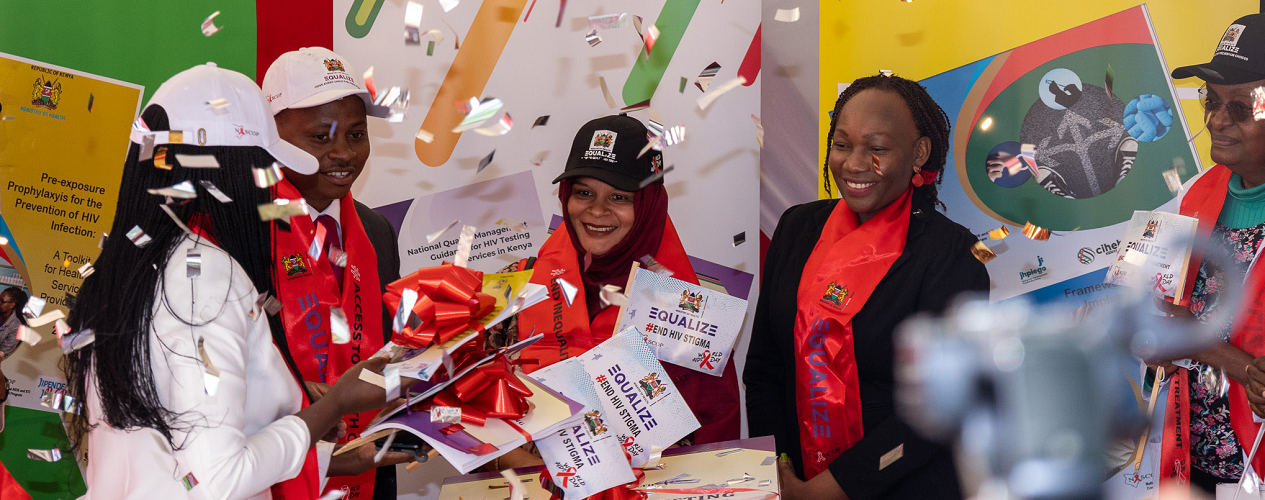
Friday, December 09, 2022
Ciheb-Kenya Joins the Globe in Commemorating the World AIDS Day 2022
Speaking during a pre-World AIDS day event in Nairobi, the Head of the National AIDS and STI Control Program (NASCOP), Dr. Rose Wafula, reiterated that the Ministry of Health, through NASCOP, commits to exploring and connecting the global and national efforts that focus on impact and progress towards the 95-95-95 targets to end the AIDS epidemic by 2030.
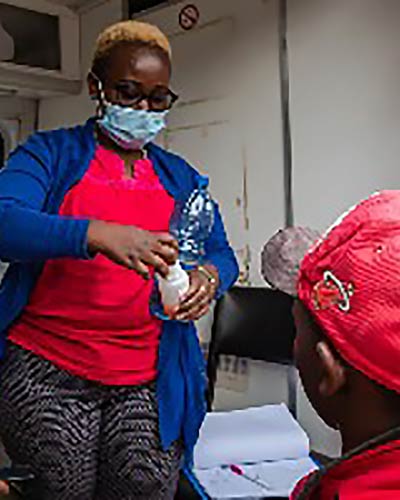
Monday, October 03, 2022
Medically Assisted Therapy Clinic in Kenya Empowers Women
In Nairobi, Ciheb’s PACT Endeleza program, with the assistance of the University of Maryland, Baltimore, and Nairobi City County, established medically assisted therapy (MAT) clinics to reduce the spread of HIV among people who inject drugs (PWID) and provide opioid substitution therapy (OST). These clinics in Mathari and Ngara were established with funding from the President’s Emergency Plan for AIDS relief through the U.S. Centers for Disease Control and Prevention.
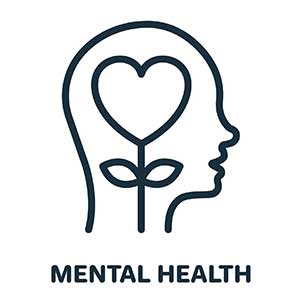
Tuesday, September 20, 2022
Caring for the Caregivers: Mental Health and Healthcare Workers in Kenya
Ciheb Kenya's CONNECT program held a two-day mental health workshop in Nairobi, Kenya. At the workshop, which was tailored for health management teams, facilitators expounded on the importance of good mental hygiene for healthcare workers.
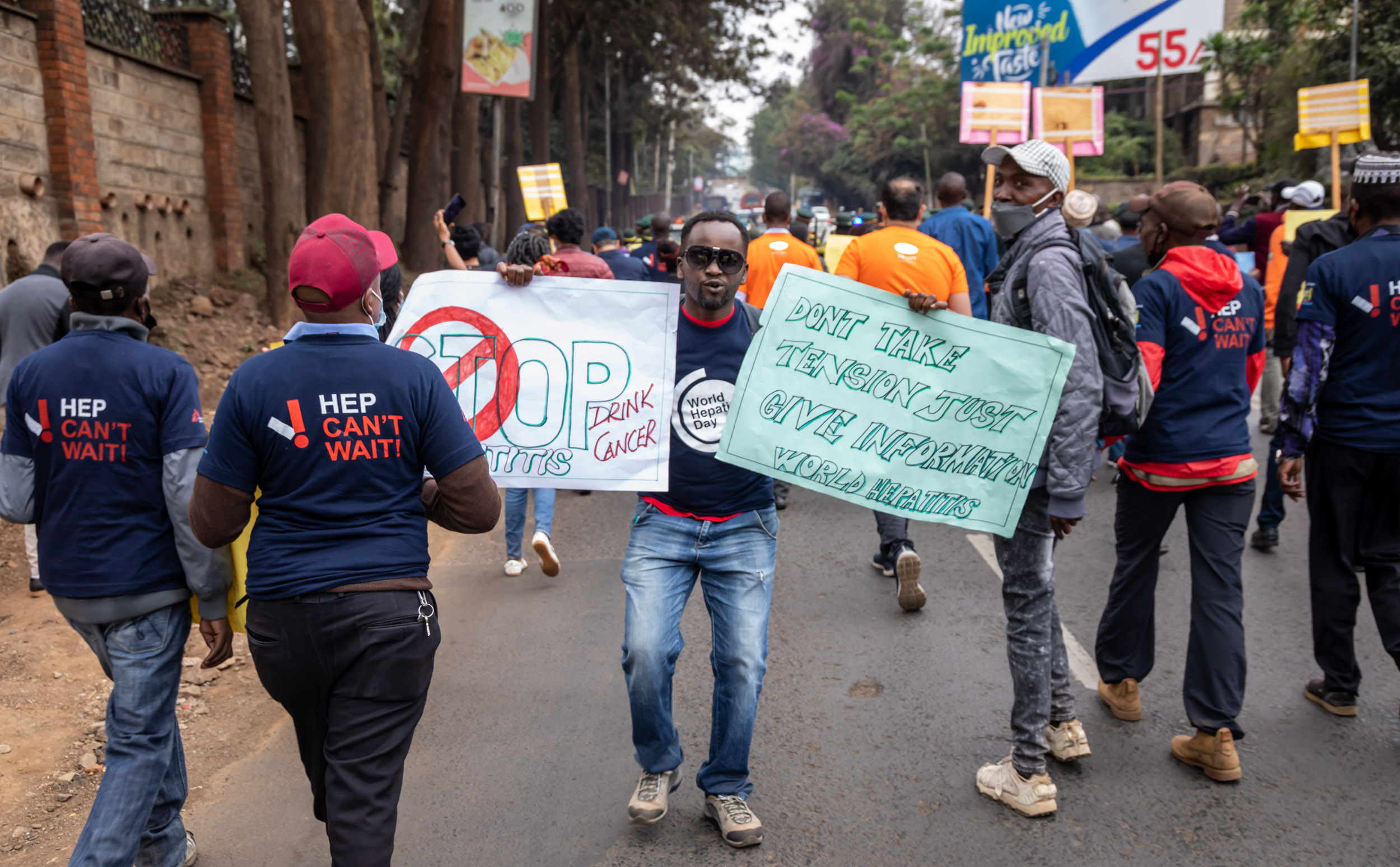
Monday, August 29, 2022
Kenya Celebrates World Hepatitis Day
Hepatitis A, B, and C are the most common of the viral hepatitis in Africa, with the African region accounting for 26% of the global burden for hepatitis B and Cin 2020.
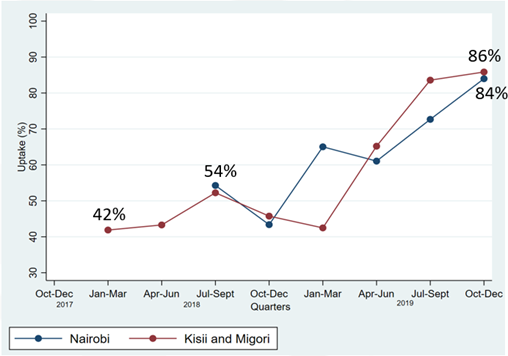
Wednesday, June 01, 2022
New Ciheb Report Compares DSD and Conventional Care
The University of Maryland, Baltimore (UMB) and Ciheb-Kenya recently released a report, “Evaluation of Differentiated Service Delivery Model,” which summarizes results, as related to DSD, from its PACT Endeleza and PACT Timiza programs in Kenya. The evaluation focused on the effect of multi-month dispensing (MMD) (three months or more) compared to conventional care.
Friday, April 29, 2022
CONNECT Program Targets Cervical Cancer
Women living with HIV are at a much higher risk of contracting cervical cancer, which progresses much faster in HIV-positive people due to their compromised immune status.
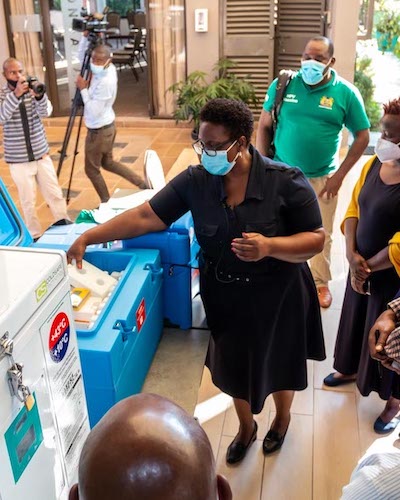
Wednesday, December 08, 2021
Supporting the Rollout of the COVID-19 Vaccine in Kenya
To combat the spread of COVID-19 in Kenya, Ciheb’s local partner, Ciheb-Kenya, received a five-year CDC-funded grant to support national and county activities towards rolling out COVID-19 vaccination. The Technical Assistance to Ready and Accelerate Capacity of public health programs in Kenya (TRACK) program is focused on supporting the development of national policies and training material on COVID-19 vaccination and teaching national trainers to cascade this training to counties.

Friday, October 29, 2021
PrEP used in the fight to end HIV in Kenya
In 2017, the Government of Kenya adopted a new policy called “A Framework for Pre-exposure Prophylaxis of IV in Kenya.” This framework directed the roll out of pre-exposure prophylaxis (PrEP) in Kenya, addressing the key focus areas of: availability, acceptability, accessibility of PrEP, and the holistic integration into the national HIV combination prevention strategy. To align with the government, Ciheb in Kenya’s PACT Endeleza program, which recently ended, also started offering PrEP that same year.
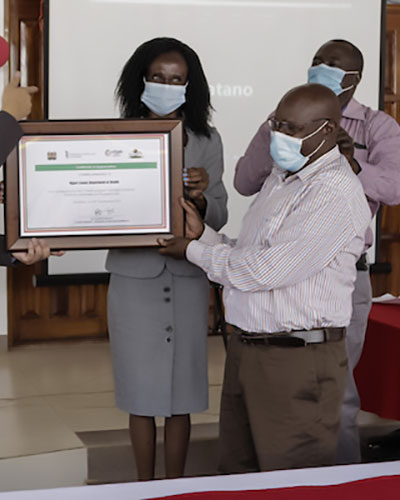
Wednesday, October 27, 2021
Kenya Country Programs Complete Five Years of Impact in HIV Services
September marked the close of Ciheb in Kenya’s two Partnership for Advanced Care and Treatment (PACT) programs, PACT Timiza and PACT Endeleza. Ciheb held closeout events in the three counties that it worked in – Kisii, Migori, and Nairobi City – to commemorate the two programs' accomplishments.
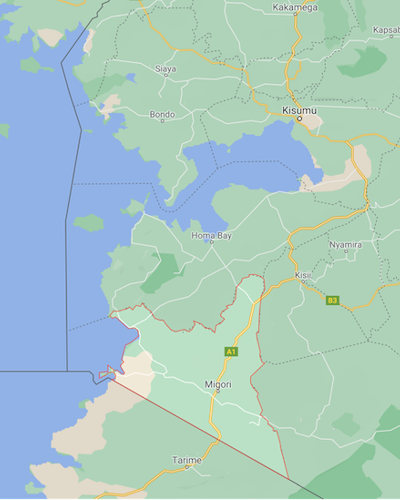
Monday, September 06, 2021
Public Health Impact through Research in HIV and TB in Western Kenya
Kenya has made remarkable strides towards reaching the UNAIDS 95-95-95 HIV targets for epidemic control, and HIV and tuberculosis (TB) services now reach a significant proportion of the Kenyan population.
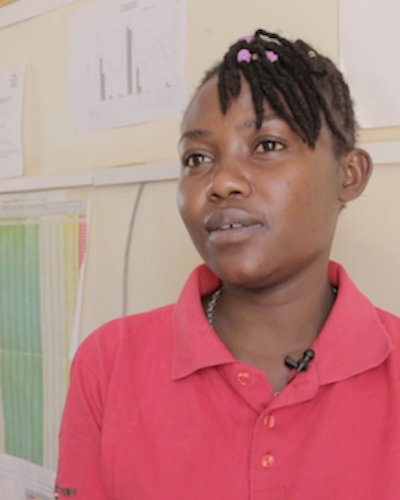
Friday, September 03, 2021
Operation Triple Zero Supports Adolescents in Overcoming HIV
HIV is a serious risk among adolescents in Kenya, and Ciheb has been helping address rising infection rates through Operation Triple Zero (OTZ). OTZ uses a contextual “asset-based approach,” whereby adolescents are considered as resources with potential answers to their challenges and are empowered to take responsibility and action for their health.
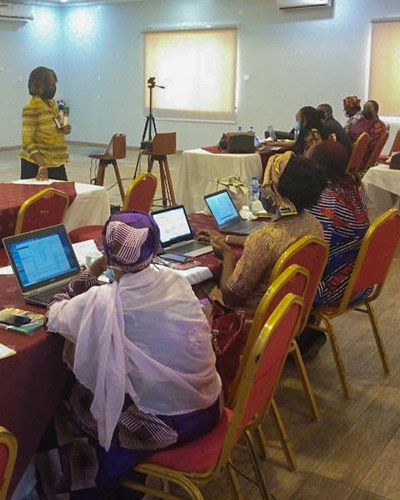
Wednesday, September 01, 2021
Data Demand and Information Use through STATA Training in Nigeria
Ciheb Nigeria, in partnership with the Federal Ministry of Health, recently facilitated a training to promote a culture of data demand among stakeholders to encourage the use of data on the National Data Repository (NDR) to track program outcomes and impact. The training also aimed to build the capacity of the stakeholders to maximize the use of data on the NDR for research.
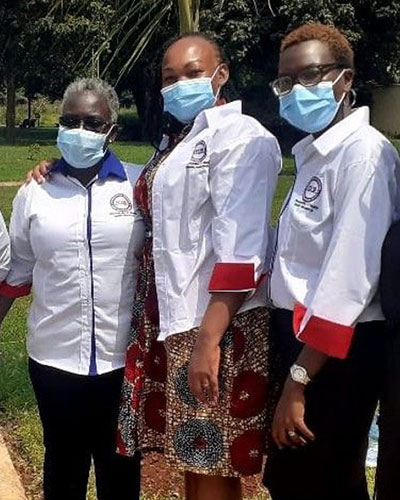
Monday, August 16, 2021
In Kenya, Ciheb Efforts Recognized in Nairobi County CQI Awards
During the summer, the Nairobi Metropolitan Services (NMS) held its annual Health Service Delivery Awards to recognize best-performing health facilities in Nairobi County. Facilities supported by PACT Endeleza won awards in all categories they participated in. NMS evaluated facilities based on their performance in continuous quality improvement metrics.
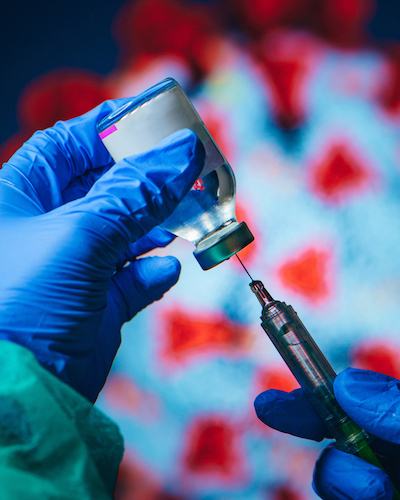
Monday, May 24, 2021
Ciheb-Kenya on the Front Lines of the COVID-19 Vaccine Rollout
Ciheb-Kenya, our local Kenyan partner, has been working with the U.S. Centers for Disease Control and Prevention, the Kenya Ministry of Health, and the National Vaccines and Immunization Programme (NVIP) to support COVID-19 vaccine preparedness through the ongoing Technical Assistance to Ready and Accelerate Capacities of Public Health Programs in Kenya (TRACK) project. Kenya received its first shipment of vaccines several weeks ago and has been moving ahead quickly. As of April 21, a total of 721,509 persons have been vaccinated against COVID-19 countrywide.

